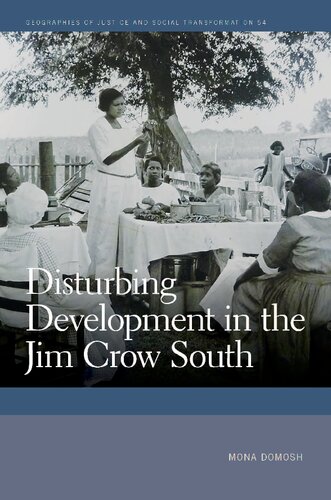

Most ebook files are in PDF format, so you can easily read them using various software such as Foxit Reader or directly on the Google Chrome browser.
Some ebook files are released by publishers in other formats such as .awz, .mobi, .epub, .fb2, etc. You may need to install specific software to read these formats on mobile/PC, such as Calibre.
Please read the tutorial at this link: https://ebookbell.com/faq
We offer FREE conversion to the popular formats you request; however, this may take some time. Therefore, right after payment, please email us, and we will try to provide the service as quickly as possible.
For some exceptional file formats or broken links (if any), please refrain from opening any disputes. Instead, email us first, and we will try to assist within a maximum of 6 hours.
EbookBell Team

4.4
22 reviewsDisturbing Development in the Jim Crow South documents how Black employees of the cooperative extension service of the USDA practiced rural improvement in ways that sustained southern Black farmers’ lives and livelihoods in the early decades of the twentieth century, resisting the white supremacy that characterized the Jim Crow South.
Mona Domosh details the various mechanisms―the transformation of home demonstration projects, the development of a movable school, and the establishment of Black landowning communities―through which these employees were able to alter USDA’s mandates and redirect its funds. These tweakings and translations of USDA directives enabled these employees to support poor Black farmers by promoting food production, health care, and land and home ownership, thus disturbing a system of plantation agriculture that relied on the devaluing of Black lives.
Through the documentation of these efforts, Domosh uncovers an important and previously unknown episode in the long history of international development that highlights the roots of liberal development schemes in the anti-Black racism that constituted plantation agriculture and illustrates how racist systems can be quietly and subtly resisted by everyday people working within the confines of white supremacy.